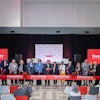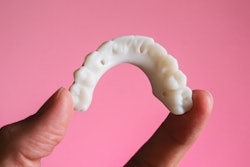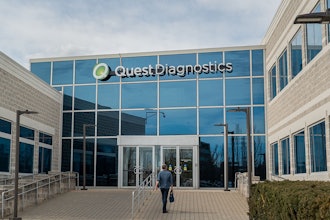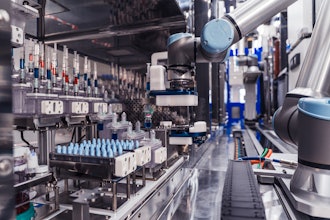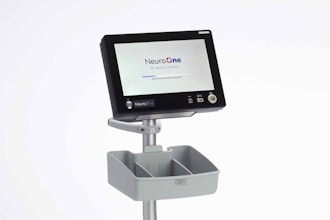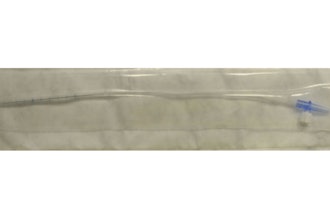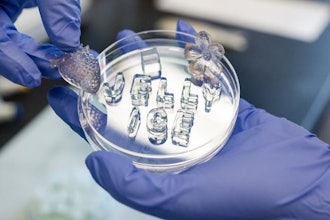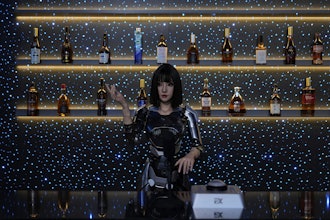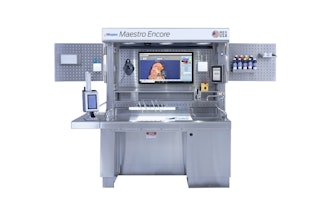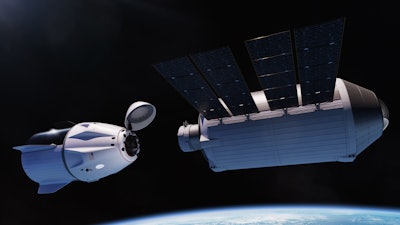
Vast, the pioneering space habitation technology company, whose goal is to build the successor to the International Space Station (ISS), today announced the revolutionary Haven-1 Lab, scheduled to be the world’s first microgravity research, development, and manufacturing platform on a commercial space station. The Haven-1 Lab, set to launch no earlier than the second half of 2025 on Haven-1, will be a hub for companies, governments, and other entities to collaborate on science, research, and in-space manufacturing.
As low Earth orbit’s premier hub for commercial endeavors in microgravity, Vast’s Haven-1 Lab will allow partners to offer onboard facilities for research and development in healthcare and pharmaceuticals, advanced material manufacturing, biotechnology, scientific experiments, and more. The Haven-1 Lab features 10 Middeck Locker Equivalent payload slots, each roughly the size of a microwave. Each payload slot can weigh up to 30 kg (66 lbs), is provided with 100 W of continuous power, and has access to an Ethernet data connection. Payloads will be operated by the astronaut crew on Haven-1, as well as commanded and monitored by ground operators via Starlink laser links, providing Gigabit/s speed, low latency connectivity. Partners will have the opportunity to return products and samples from space via a SpaceX Dragon spacecraft.
In tandem with Vast’s announcement of its Haven-1 Lab, the company also announced Redwire and Yuri as its inaugural partners, representing some of the foremost experts in the development of microgravity payloads.
Redwire specializes in microgravity research and development technologies, specializing in space biotechnology and pharmaceutical development, spanning more than three decades of human spaceflight heritage. Redwire owns nine payloads and facilities currently installed on the ISS including Redwire’s BioFabrication Facility, which successfully printed the first ever human meniscus and first live human heart tissue in space. Additionally, Redwire has developed a first-of-its-kind pharmaceutical drug development platform—Pharmaceutical In-space Laboratory – Bio-crystal Optimization Xperiments (PIL-BOX)—which has flown three flight missions to and from the ISS, demonstrating how microgravity can lead to innovations in drug development.
Yuri, Vast’s second inaugural payload partner, is renowned for its pioneering efforts in leveraging microgravity to develop groundbreaking biotech products, cures, and medical solutions. This partnership with Vast will enable Yuri to expand its innovative payload opportunities to the global institutional and commercial research community. By utilizing the on-orbit version of ScienceTaxi, Yuri will unlock new scientific discoveries through its superior technical capabilities, such as advanced space microscopy. This initiative will harness the potential of LEO for commercial biotech advancements.
In addition to these inaugural partnerships, Vast is pursuing payload partnerships in a variety of cutting-edge industries, including semiconductor and advanced material manufacturing, edge computing, and machine learning.
Furthering the company’s commitment to foster increased innovation in the payload space, Vast is also offering a unique payload end-user program so that individuals and companies of any size or capacity can join forces with established payload partners to access space in a low-cost manner, conduct independent or joint experiments in microgravity environments, and tap into unlimited opportunities for collaborative growth.

